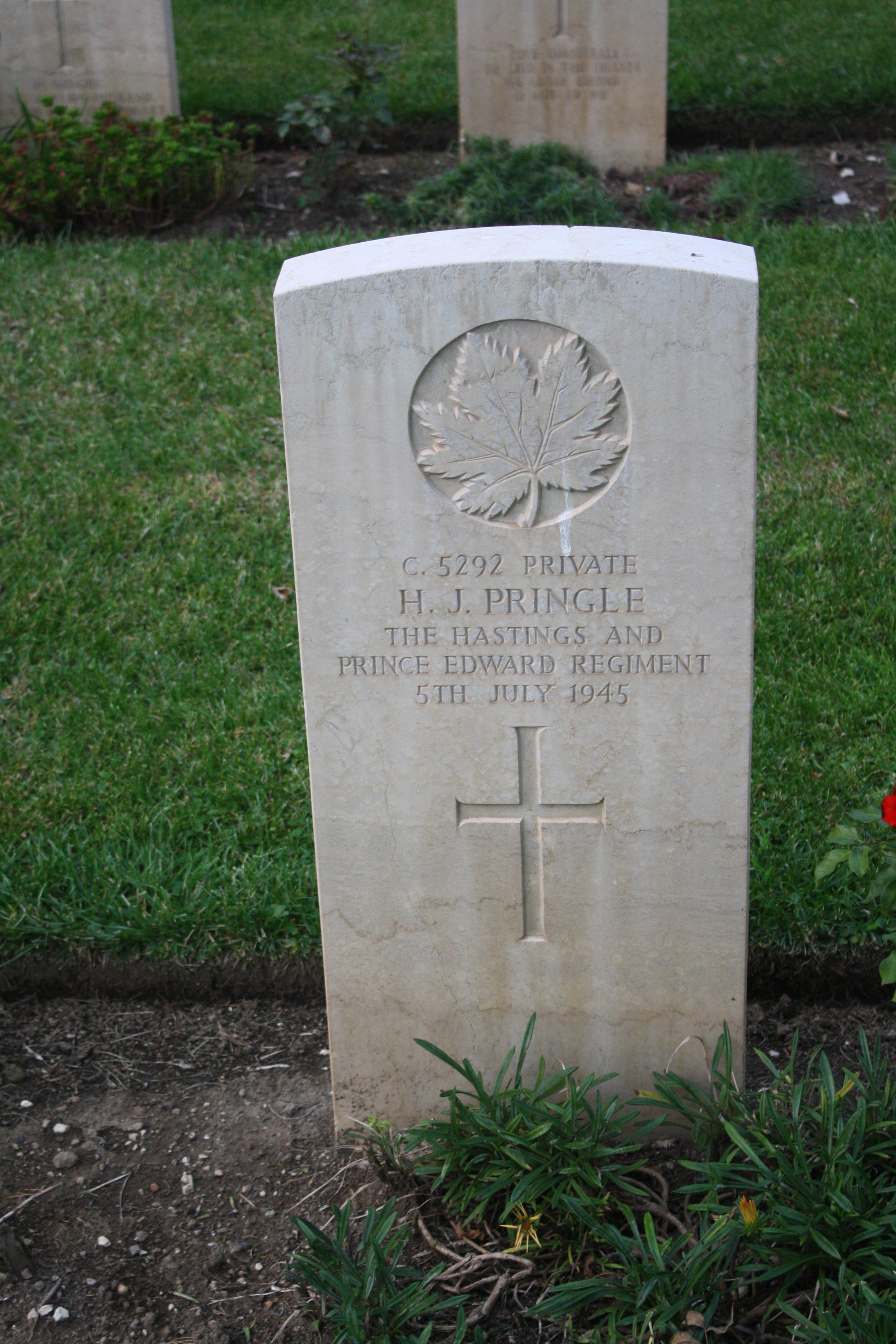With little pretence to lofty ideals, military law serves strictly utilitarian and practical purposes in the maintenance of discipline within armed forces. Its endearing qualities are few. The application of military law is sometimes arbitrary and is heavily influenced by situation; it places the interests of service and group before the individual, and tends toward severe punishments. (Madsen, p. 3)In the First World War, twenty-five (or twenty-six depending who is counting) soldiers were executed, largely on charges of desertion. These soldiers' fate, and the administration of courts martial was largely trusted to British officers. By the end of the conflict, the lack of a supreme Canadian authority to oversee courts martial decisions was trumpeted as unjust by advocacy groups who wished to abolish the death penalty. While the end of death penalty for murder in Canada would have to wait until 1976, by the Second World War authority to execute a soldier had been transferred to Canadian hands.
The Canadian Army sentenced three soldiers to death during the Second World War, but only one unfortunate soul, Harold Pringle, was actually executed. Harold Joseph Pringle was born on January 16th, 1920, at Port Colborne, Ontario, and had enlisted in early 1940. By late 1940 he was overseas and was beginning to tally up what would become a large number of convictions for absence without leave. In February 1944, he was dispatched to the Italian theatre, corroborating the (somewhat exaggerated) complaints of officers there that the theatre was being used as a dumping ground for undesirable personnel. After serving with the Hastings and Prince Edward Regiment in the Liri Valley, Pringle again went away without leave and in June of 1944 joined a gang of black marketeers in Rome. Association with these outlaws would be his ultimate undoing.
 |
| ENTRY OF ALLIED TROOPS INTO ROME, 5 JUNE 1944 © IWM (TR 1844) Capt. Tanner. |
The report of the Chief of Staff at Canadian Military Headquarters (London) to National Defence Headquarters (Ottawa) of May 1945 regarding the review of the Pringle case shows the legal grey areas in a case of murder or other civil offenses, especially, at the end of the war:
The fact that the accused and the victim were both members of the Canadian Army, and that the trial was by a Canadian Court Martial, is not, in my view, the controlling feature of this case. In essence, this is a case which arises out of the shooting of one Canadian citizen by another Canadian citizen. Considering the matter in this way, I have come to the opinion that the fact that the war is now over and won should not influence me to treat the matter otherwise than simply as a case of murder. (Chief of Staff, CMHQ to NDHQ, 12 May 1945, DVA (WSR) file C-5292 as cited in Army Headquarters Report No 91, p.98)Three other cases of Canadian personnel sentenced to execution by British civil courts show that the murder of civilians was treated as a civil offence. (See Jonathan Vance, Maple Leaf Empire, p.178)
 |
A Telegram confirming Pringle's sentence. RG24 Vol 12718. Library and Archives Canada
|
British courts martial had meanwhile tried two others in the Pringle case, and in the Spring of 1945 Sapper CHF Honess and Fireman WR Croft were executed. It took until 5 July 1945 for the Pringle sentence to be conveyed by order in council. A post-war Army Headquarters Report recorded, in its dry prose, "The finding and sentence were promulgated at Avellino, Italy, at six o'clock on the morning of 5 July, at which time Pringle was informed of the disallowance of his petition by the Governor General in Council. Exactly two hours later the sentence was carried out by a firing squad." (Army Headquarters Report No 91, p.99)
 Sympathy for Pringle greatly varies among historians. Andrew Clark wrote a biography which writes of Pringle in a sympathetic light portraying him as a victim of the war and the military system. (Review by Lukits) He would likely agree with Chris Madsen, who noted that those executed in the previous war were not "bad apples", but ordinary men pressed into extraordinary circumstances who simply could not bear the strain. (Madsen, p.46) Jack Granatstein, however, was not convinced that we should pity the deserter, criticizing Clark's "overly sympathetic treatment of Pringle, which all but demeans the suffering and sacrifice of those who stuck it out and fought."
Sympathy for Pringle greatly varies among historians. Andrew Clark wrote a biography which writes of Pringle in a sympathetic light portraying him as a victim of the war and the military system. (Review by Lukits) He would likely agree with Chris Madsen, who noted that those executed in the previous war were not "bad apples", but ordinary men pressed into extraordinary circumstances who simply could not bear the strain. (Madsen, p.46) Jack Granatstein, however, was not convinced that we should pity the deserter, criticizing Clark's "overly sympathetic treatment of Pringle, which all but demeans the suffering and sacrifice of those who stuck it out and fought." |
| Find a Grave Photo by Mark South |

No comments:
Post a Comment